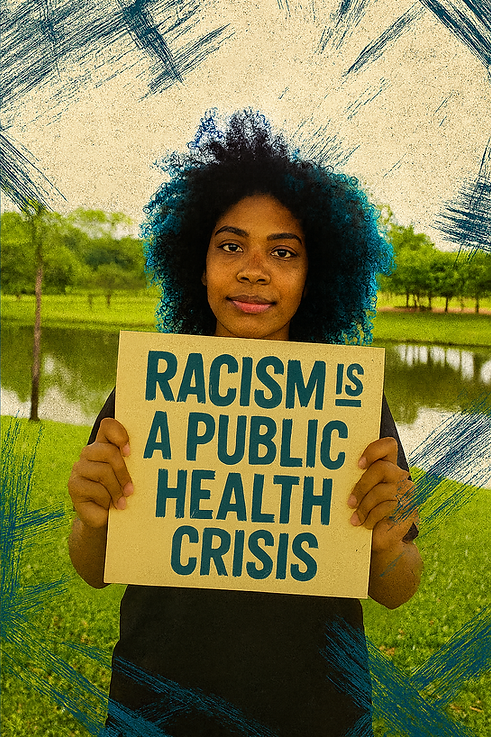“Racism should not follow me into the doctors office.
It shouldn't follow me
into an education setting. It shouldn't follow me into a job. It shouldn't follow
me anywhere, because racism should not exist.“ - Yvonka M. Hall, NEOBHC
Executive Director
Racism is **both an ideology and a system: it is the unjust belief that one racial
group is inherently superior to others and the power-driven practices that
enforce this belief in society. In essence, racism means prejudice plus power. It
originates in the false narrative of race-based hierarchy – the idea that
differences in skin color or ancestry determine human worth – and manifests as a
broad pattern of privilege and oppression. On a personal level, racism appears as
stereotypes, fear, or hatred toward people of another race. On a systemic level,
racism operates through institutions and policies that favor the dominant group
while disadvantaging or excluding others. In the words of one Black scholar,
“racism is a system of advantage based on race”, a system that has been built
into societal structures and continues to produce racial inequity.
“The function, the very serious function of racism is distraction. It keeps you
from doing your work. It keeps you explaining, over and over again, your reason
for being.” – Toni Morrison
Racism as a Public Health Crisis: NEOBHC’s Response in Northeast Ohio
When Cleveland and Cuyahoga County declared racism a public health crisis in
2020, the Northeast Ohio Black Health Coalition (NEOBHC) acted quickly to move
the declaration into action.
African American Policy Committee (AAPC): NEOBHC established this committee
to drive systemic change. Made up of community members, public agencies, and
private sector partners, the AAPC focuses on changing the policies that fuel
health inequities. Our work is rooted in a simple truth: if racism is the crisis, then
policy change is the prescription.
The AAPC researches and advocates for reforms in housing, criminal justice,
education, and healthcare that directly affect Black health outcomes. From
strengthening lead poisoning prevention to improving racial health data
collection, the committee ensures that solutions are concrete, evidence-based,
and informed by community voices.

